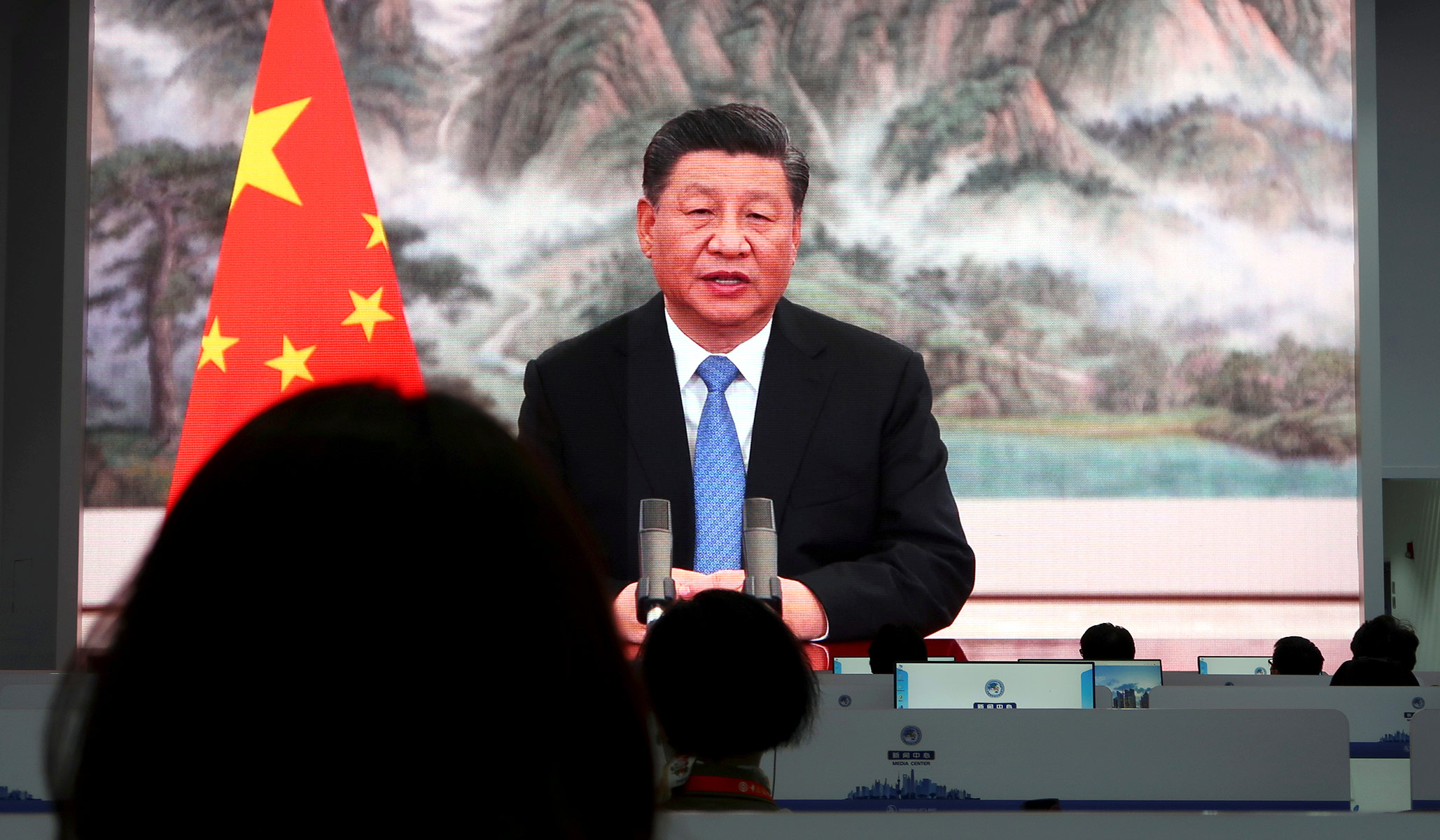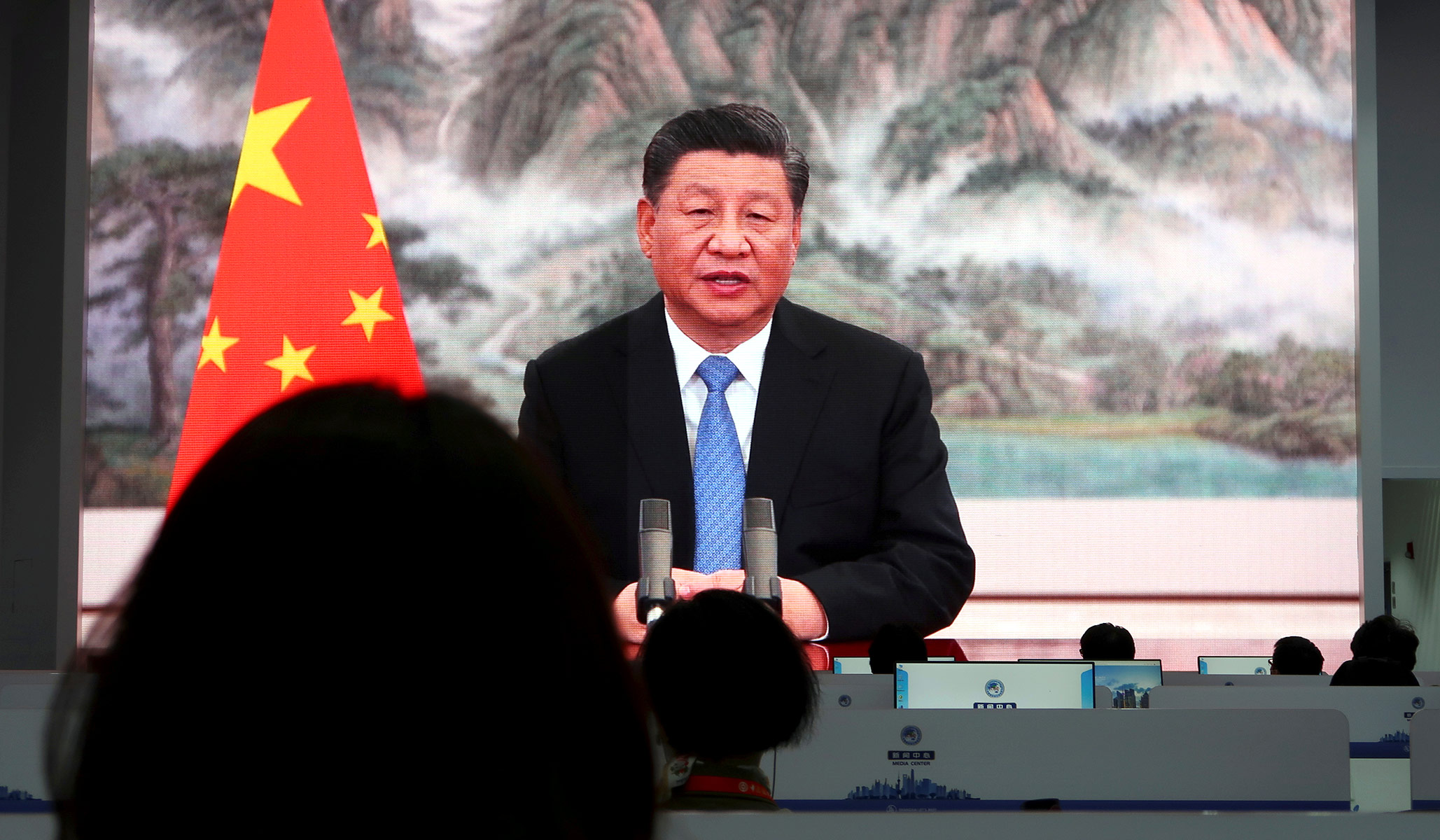
There can be no reasonable doubt about the scale and sophistication of the challenge that China is now mounting against the U.S.: It will be playing out on many fronts.
Of these, one of the most important will be technological.
Xi:
Technological innovation has become the main battleground of the global playing field, and competition for tech dominance will grow unprecedentedly fierce.
As I noted the other day, it will and it has, and China is doing rather well. It is a mix of wishful thinking and liberal delusion (the two are not mutually exclusive) to assume that China’s rapid evolution into a fascist state, complete with “harnessed capitalism,” is going to slow down that progress, or at least slow it down by enough to help the U.S. The idea that innovation in the information technology space is an area where free societies necessarily have a decisive advantage is, sadly, nonsense.
In a recent Capital Letter, I discussed a report from Harvard’s Belfer Center showing just how well China is doing. It is worth taking the time to read (with a strong drink by your side) both the report and a WSJ article by Graham Allison and Eric Schmidt in which the two discuss it. Spoiler: bad news ahead.
Allison and Schmidt called for “a national response analogous to the mobilization that created the technologies that won World War II.” I wasn’t convinced that was the way to go (I’m still not), but what I did conclude was this:
Better precedents (for now) can be perhaps found in the steps taken in the U.S. after the Soviets took an early lead in space, and another in the public–private sector cooperation that worked so well with Operation Warp Speed. One thing, however, is abundantly clear (as has increasingly been acknowledged in Washington). Where China is concerned, there can be no room for business as usual.
That, I believe, continues to be the case. Nor can there be business as usual in certain areas, such as the aggressive redefinition of antitrust now being attempted by an FTC run by Lina Khan, a progressive ideologue. Khan’s strained interpretation of antitrust, a device designed to take on Big Tech for, essentially, political reasons, risks wrecking the very companies that, for all their faults, are our best chance of maintaining the pace of innovation needed to keep ahead of China. There are plenty of reasons for opposing what Khan is up to, but the geopolitical harm her initiatives would inflict on the U.S. is one that should weigh very heavily indeed.
Unfortunately, it looks as if Congress, acting in part in bipartisan fashion (something that can, depressingly frequently, be an indicator of serious policy error ahead), may be about to make things worse.
Robert O’Brien in the Wall Street Journal:
Few issues unite both sides of the political divide more than anger at U.S. tech companies, whether for censorship of conservative viewpoints or for failing to counter misinformation online. In response to these concerns, legislation introduced in Congress would weaken the U.S. tech industry, ostensibly in the name of breaking up monopolies. Unfortunately, the various bills would hurt the U.S. and strengthen the hand of our greatest geopolitical rival, the People’s Republic of China. . . .
President Xi Jinping has stated his intention to spend $1.4 trillion by 2025 to surpass the U.S. in key technology areas, and the Chinese government aggressively subsidizes national champion firms. Beginning with the “Made in China 2025” initiative, Beijing has made clear that it won’t stop until it dominates technologies such as quantum computing, artificial intelligence, autonomous systems and more. Last month the National Counterintelligence and Security Center warned that these are technologies “where the stakes are potentially greatest for U.S. economic and national security.”
Concerns about China’s expanding technological capabilities aren’t merely speculative, and extend into the military domain. Earlier this year, researchers at the University of Science and Technology of China claimed to have built the world’s fastest programmable quantum computer, a machine that is some 10 million times faster than its closest competitor. Should the Chinese Communist Party assume the lead in quantum computing, the future of a free and open internet will be at significant risk. The U.S. military and intelligence community could lose its ability to communicate securely, as quantum computing can break even the most sophisticated codes in short order.
Similar worries are justified in autonomous systems and artificial intelligence. . . . As the National Commission on Artificial Intelligence noted, should China gain a competitive advantage over the U.S. in the AI field, “it will also create the digital foundation for a geopolitical challenge to the United States and its allies.”
Enter our legislators, trying to, yes, make things worse (my emphasis added).
O’Brien:
The House Judiciary Committee recently approved five bills that would place the U.S. technology industry at a structural disadvantage compared with China’s national champion firms. The bills would limit the ability of the U.S. tech industry to engage in mergers and acquisitions; actively promote the disaggregation of platforms; and require data interoperability that ultimately gives an advantage to foreign tech competitors over U.S. firms.
Despite significant criticism of this approach from national security leaders, members of the Senate Judiciary Committee have introduced bills that are nearly identical to the House legislation. These bills hit only American companies while leaving Chinese tech rivals — including those with significant U.S. operations like Tencent and TikTok — untouched. Writing laws that directly benefit Chinese and other foreign tech competitors is not how to compete with China.
Cloaked in antiquated interpretations of U.S. antitrust law, these bills hand increased authority to bureaucrats at the Federal Trade Commission and lay the groundwork for dismantling America’s most successful technology companies — the ones at the forefront of the race to retain U.S. dominance in fields such as quantum and AI. Chinese firms like Tencent, Bytedance, Alibaba, Huawei and Baidu are seeking to supplant U.S. companies and would have an open field world-wide and in America if these bills pass.
To pass legislation of this type would be lunacy.
O’Brien goes on to discuss the question of “censorship” (and the like) by Big Tech. He would be more interventionist than I (low bar — as grotesque as some of this censorship may be, I remain opposed to any intervention in this area).
He then concludes with this:
If Congress is truly concerned about the Communist Chinese threat, cutting off the flow of Wall Street dollars that is funding Chinese tech growth should be its highest legislative priority.
This is an interesting idea. In my earlier post, I quoted from a Financial Times report:
The Biden administration will place eight Chinese companies including DJI, the world’s largest commercial drone manufacturer, on an investment blacklist for their alleged involvement in the surveillance of the Uyghur Muslim minority.
The US Treasury will put DJI and the other groups on its “Chinese military-industrial complex companies” blacklist on Thursday, according to two people briefed on the move. US investors are barred from taking financial stakes in the 60 Chinese groups already on the blacklist.
While as a general rule I am strongly opposed to capital controls of any kind, that doesn’t apply when national security is concerned. Prohibiting any U.S. investment in Chinese technology companies, a term that should be defined very broadly indeed, must be a priority. The essence of the Chinese corporatist model is that there is no clear border between private enterprise and the state. That means that American investors who put money into Chinese tech are, whether they are prepared to admit it or not, helping Xi’s technological challenge to the U.S.
Lenin may or may not have said that “the Capitalists will sell us the rope with which we will hang them,” but, however apocryphally, he was right. Helping “communists” manufacture an improved version of that rope would have been an extra, so to speak, twist that he would have appreciated.

